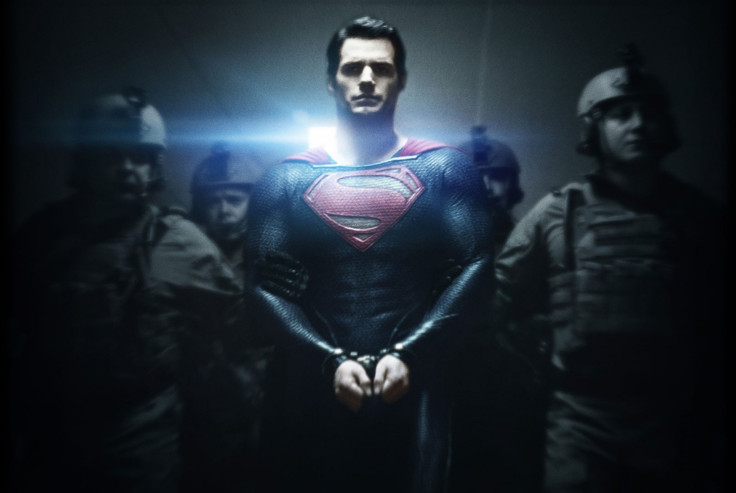‘Man of Steel’ And Hollywood’s Tired Obsession With Dark Superheroes

“Man of Steel” opens nationwide this weekend, and with it, Zack Snyder has given Superman Hollywood’s standard 21st-century makeover. The suit has gone from bright blue and red, to muted gray and rust, and the boxy chin has been replaced by sallow cheeks and a heavy scowl. We can only assume his soul is even heavier. Yes, folks, Superman has gone dark. The world’s first comic book hero is following in the footsteps of every comic book hero before him.
It’s a stale trend that the entertainment community has been milking for far too long. In addition to dark superheroes over the last 12 months, we’ve dark fairy tales (“Hansel & Gretel: Witch Hunters,” “Snow White and the Huntsman”), dark prequels (“Oz the Great and Powerful”), and more apocalypse and zombie movies than we know what to do with.
The year before, “Transformers: Dark of the Moon” moped its way to the top of the box office just as “Spider-Man: Turn Off the Dark” was depressing Broadway audiences with Julie Taymor’s overwrought references to Greek tragedy.
And last month, of course, Gene Roddenberry’s eternally rosy “Star Trek” franchise finally trekked “Into Darkness” after almost a half-century of optimism. Hell, even our presidents aren’t safe. It’s not enough that Abraham Lincoln freed the slaves. In 21st century cinema, he also hunts vampires.
So what’s going on with Hollywood’s dark obsession? The short answer is, people keep going to see ill-conceived movies, but the longer answer is a bit more nuanced. Many commentators trace the origins of the Dark New Wave to Christopher Nolan’s intellectually complex “Dark Knight” trilogy. But I think it actually goes back to Tim Burton’s 1989 “Batman.” A defiant departure from the Christopher Reeve “Superman” franchise that dominated superhero cinema in the 1970s and ‘80s, Burton’s reimagining had none of the boy scout buoyancy we’d come to expect from our superheroes. No bright colors. No John Williams score. And his Batman’s sculpted black suit looked nothing like the Underoos they made Adam West wear in the 1960s. This was a true reinvention, and it worked.
The problem is, it worked too well. And years later, when Nolan took hold of the “Batman” franchise, he built upon those elements for a concept so psychologically mesmerizing that every big-budget filmmaker has been trying to replicate his formula since. We all know they can’t, of course. If anything signifies the apex of the New Dark Wave, it’s the “Dark Knight” trilogy, so where else is there to go but down?
This is not to say that the darker aspects of human nature are unworthy of tentpole examination. On the contrary: Melancholy and personal torment are timeless thematic elements that can and should be explored by filmmakers at all levels. But there’s a difference between exploring and pandering. Most of the aforementioned efforts show no true dedication to darkness. They’re not interested so much in exploring personal torment as they are in aggrandizing their own seriousness and fetishizing the color black. And since when did “darkness” become a synonym for “humorless”? Michael Keaton’s Batman had it just as bad as the next angsty superhero, but at least Burton knew to toss in Jack Nicholson for comic relief. In “Man of Steel” we get a brooding Henry Cavill squaring off against an even more brooding Michael Shannon.
It’s also worth pointing out the obvious fact that darkness -- as a character trait or a color scheme -- works for Batman. The source material begs for it. Bruce Wayne is a conflicted, disturbed millionaire who lives in Gotham City and dresses up like a bat. Superman, conversely, fights for truth, justice and the American way. That Snyder would attempt to paint his mission statement in a Nolanesque palette of dark greys and sullen souls only proves how desperately Hollywood is still clinging to idea that darkness is humanity’s only virtue.
If early projections are any indication, “Man of Steel” is going to (kill me) soar at the box office. That’s too bad. Perhaps if it fell to earth, dark-obsessed Hollywood would finally start to see the light. Then maybe we could too.
Got a news tip? Send me an email. Follow me on Twitter: @christopherzara
© Copyright IBTimes 2024. All rights reserved.












